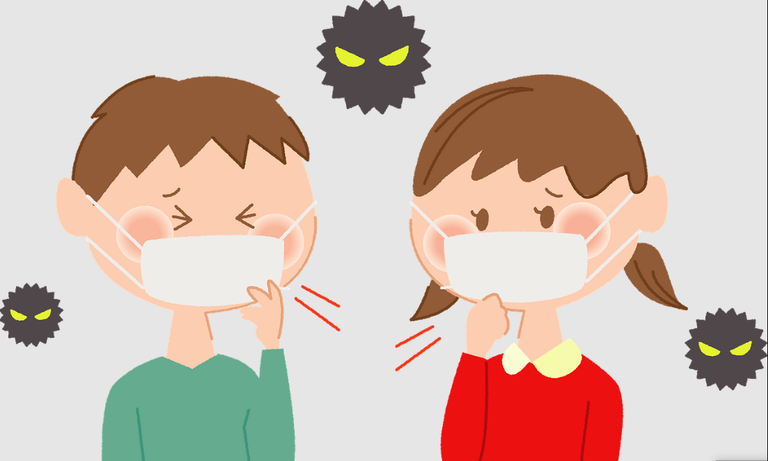
When I was a teen, each time I trek too fast or run, I cough. This cough may last as short as a couple of minutes or as long as a couple of days depending on the fast trekking or running timeline. I currently have a 5-year-old that suffers from the same fate. Whenever he engages himself in plays involving running around, he starts coughing.
My 5-year-old has a history of coughing before now. I have written a couple of posts about it on my blog here on hive. We explored different medical options back then all to no avail. The cough surfaces and subsides by itself, at least that's what we thought back then. It wasn't until recently we observed and effectively concluded that the cough was due to exposure to moving air.
My 8-month-old girl also suffers from something similar. Each time she gets exposed to moving air, she develops a cold. Interestingly, my 3-year-old seems built differently, although the lessons from the remaining 2 make me protect him from exposure to moving air and cold temperatures as much as possible.
Why does exposure to moving air cause cough and or cold/catarrh? This is the first question that came to my mind when I made the discovery. I also wondered whether the ability to react to moving air this way has some elements of genetics to it. This is because it doesn't seem to apply to everyone. I've seen kids running about the entire day without developing cough or cold.
According to my findings, exposure to moving air, especially cold or dry air, can cause or exacerbate symptoms like coughing, cold, or catarrh for a couple of reasons:
Drying of Mucous Membranes: Moving air can dry out the mucous membranes in the nose and throat, reducing their ability to trap dust, viruses, and bacteria. This increases irritation, making you more susceptible to infections or causing a cough due to throat dryness.
Temperature Sensitivity: Cold air can irritate the airways, causing the muscles to contract, leading to coughing or respiratory discomfort. For some people, this can trigger a reflex cough or worsen underlying respiratory conditions like asthma.
Immune Response: Exposure to cold air can sometimes lower your body's immune response temporarily, making you more vulnerable to viruses that cause the common cold. Moving air may also spread airborne viruses, increasing the chance of catching an infection.
Nasal Congestion: Cold air can cause blood vessels in the nose to constrict and then dilate, leading to a runny or blocked nose (catarrh), which mimics cold symptoms.
On whether there is a genetic element to it, this sounds plausible as it has already been established that all diseases, except the ones caused by pathogens, have a genetic basis. It is now clear that except for my 3-year-old, my kids are as susceptible to cold or dry moving air as I do. If perchance, I have more kids, I will also need to watch out for this ability in them.
In conclusion, if you are a parent who has been toiling to get solutions for your child or children's cough, you may want to start looking at their exposure to cold or dry air. Do you have experience dealing with a stubborn cold or cough in your kids? Feel free to share with me below.
Resources
- https://www.condair.com.ng/scientific-studies/low-ambient-humidity-impairs-barrier-function-and-innate-resistance-against-influenza-infection
-https://www.medicalnewstoday.com/articles/323431
-https://wexnermedical.osu.edu/blog/is-the-cold-weather-causing-your-runny-nose - https://www.ncbi.nlm.nih.gov/books/NBK132142/
Thanks for your contribution to the STEMsocial community. Feel free to join us on discord to get to know the rest of us!
Please consider delegating to the @stemsocial account (85% of the curation rewards are returned).
You may also include @stemsocial as a beneficiary of the rewards of this post to get a stronger support.
Congratulations @gentleshaid! You have completed the following achievement on the Hive blockchain And have been rewarded with New badge(s)
Your next target is to reach 61000 upvotes.
You can view your badges on your board and compare yourself to others in the Ranking
If you no longer want to receive notifications, reply to this comment with the word
STOP